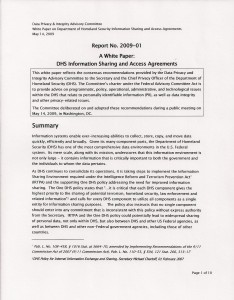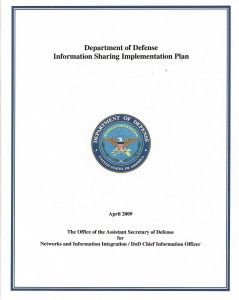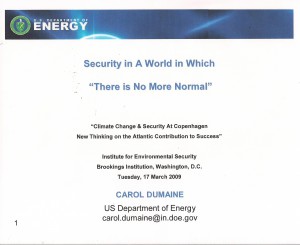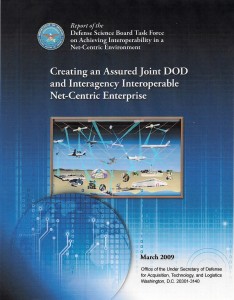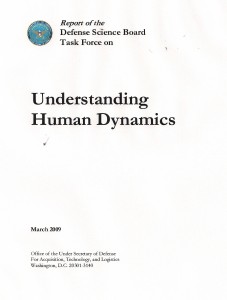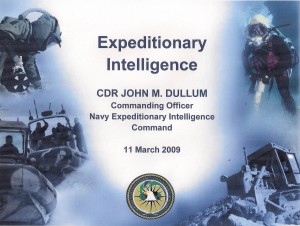In our view the Department of Homeland Security (DHS) went down the wrong road, trying to create a “mini-me” secret enterprise. The Joint Fusion Centers have all collapsed because–as we anticipated and articulated–there is nothing really valuable that can be done with a one-way saline drip from the top to the bottom. Instead, DHS needs to create a robust bottom-up Community Infomration Sharing and Sense-Making Architecture, and as we have pointed out in the past, the unclassified concepts, doctirine, tools, and training are precisely analogous to what we need for multinational information sharing and sense-making for early warning, stabiliztion & reconstruction, achievement of the Millenium Goals, and so on.
Below is an excellent overview from CRS–the one failing of CRS is that they do not know what they do not know, and hence evaluate on industrial-era benchmarks rather than information-era bvenchmarks.
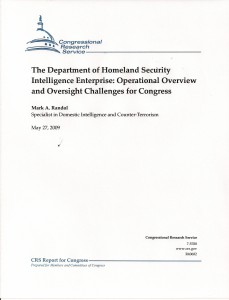
Follow the Frog to see our briefing to DHS Intel at the invitation of LtGen Pat Hughes, USA (Ret), the first Assistant Secretary for Intelligence there. he continue to hold him in the highest esteem, as with his successor, Charlie Allen (since retired)–when such great men fail, we must conclude that we have a pathological system, not that they lacked in any way.


